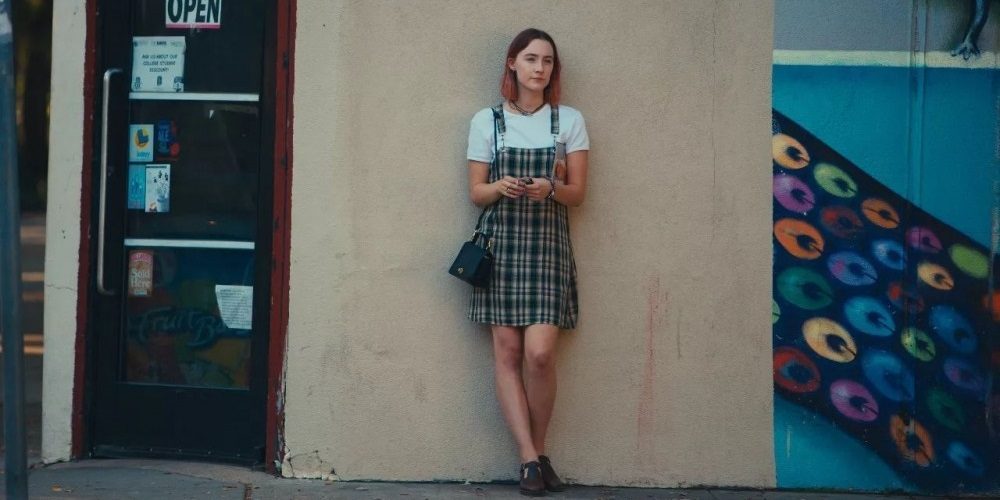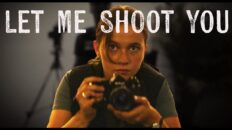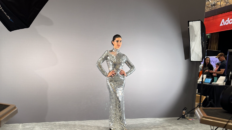A 17-year-old girl and her mother are driving down a country highway listening to The Grapes of Wrath on cassette tape. They briefly bond over the story they’ve just heard but when the mother tries to shift the conversation towards the local colleges they have been touring, the dialogue quickly devolves into a back and forth of verbal sniping that culminates in the daughter melodramatically throwing herself out of the moving car.
This opening scene sets the tone for Lady Bird, a through and through coming of age story that is at times hilarious and heartfelt, touching and melancholy, and deeply honest. The story mirrors writer/director Greta Gerwig’s own adolescence, and as such, takes place in a private Catholic high school in Sacramento in the early oughts.
Lady Bird is the name of the protagonist, but it’s not her real name, of course. Her actual name is Christine and this—the struggle to get her mother to call her by her chosen name rather than her given one—is just one of many contentious issues between Lady Bird and her mother in the former’s angst-filled transition into adulthood.
As a millennial who is roughly the same age as the film’s protagonist (I graduated in 2004, one year later than Lady Bird), there was a lot I found to relate to. I never attended a Catholic high school. I didn’t date much. I never reinvented myself to blend in with the popular kids, and I certainly wasn’t so outspoken or hyperbolic that I ever felt the need to throw myself out of a moving vehicle, but, like Lady Bird, I did want to get away to one of those ‘prestigious fine art colleges’ in the east and be an artist. I did struggle with an overbearing mother who only wanted what was best for me but didn’t quite understand me. I did desire to be liked by my peers and wondered if I fit into my family and desired for something more meaningful.
Those last few are pretty universal feelings among teenagers; it would be easy to say this is just another coming of age flick in the ocean of self-indulgent stories from writer-directors who consider their experience to be endearingly unique. Perhaps they’re even right, but there is something so sincere about this movie that it stands out.
I have to give props to Laurie Metcalf, who played Marion, Lady Bird’s mother, aptly described as ‘warm and scary,’ Tracy Letts, who played Lady Bird’s father, Larry (and stole every scene he was in), and Lucas Hedges, who seems to be showing up everywhere lately. Here he plays Lady Bird’s first boyfriend who is struggling with some issues of his own. The other young actors are also worth a shout out; particularly Beanie Feldstein, who plays Lady Bird’s dowdy best friend, Julie, a supportive girl with a sweet heart who goes along with her more gregarious friend’s antics; and Timothée Chalamet, Lady Bird’s second boyfriend, who was so convincingly infuriating, I almost want to punch the actor in the face—although I’m sure he is a nice boy in real life.
But the most credit goes to Saoirse Ronan, who does an entirely believable job playing a Midwest American teenager in the disillusioned new millennium, despite the fact that she is an Irish girl born a decade later, who likely never experienced the ennui of being an unremarkable teenager, since she has been acting steadily since she was a child.
Lady Bird is Gerwig’s writing and directing debut and an impressive one at that. There is something so heartfelt about the relationships between Lady Bird and her friends and family; though she repeatedly searches for meaning in outside places and people, the heart of the film really lies in the relationships with Marion and Julie, the ones closest to home. As she passes into adulthood, Lady Bird realizes the value in striking a balance between striking it out on your own, and keeping your home in your heart.








